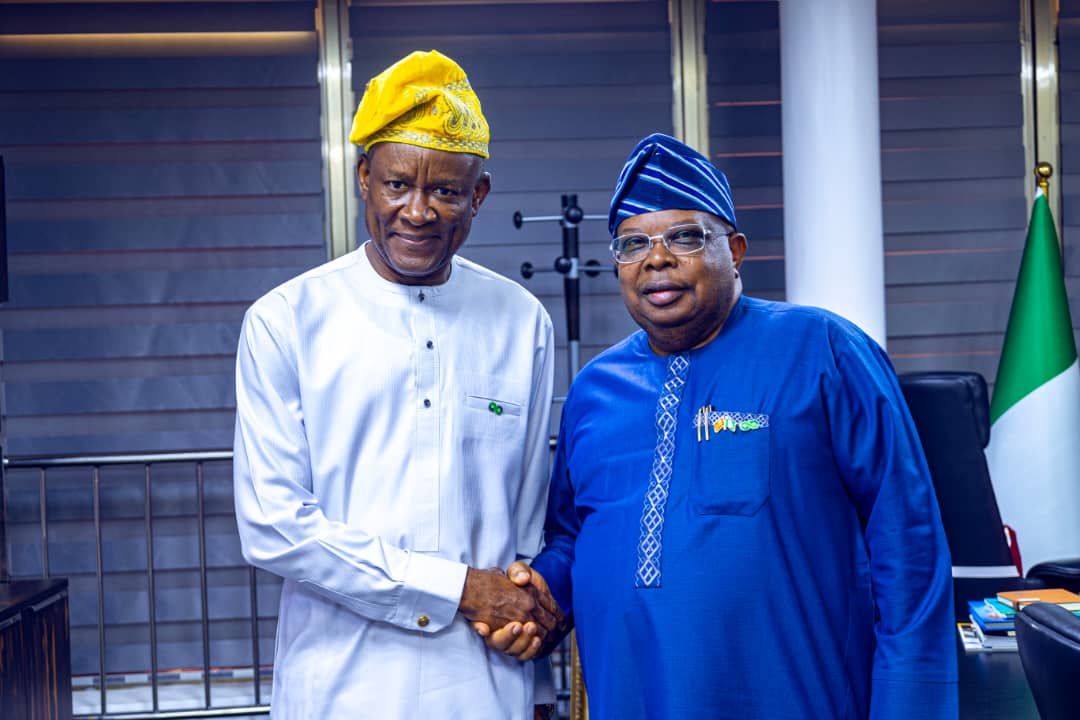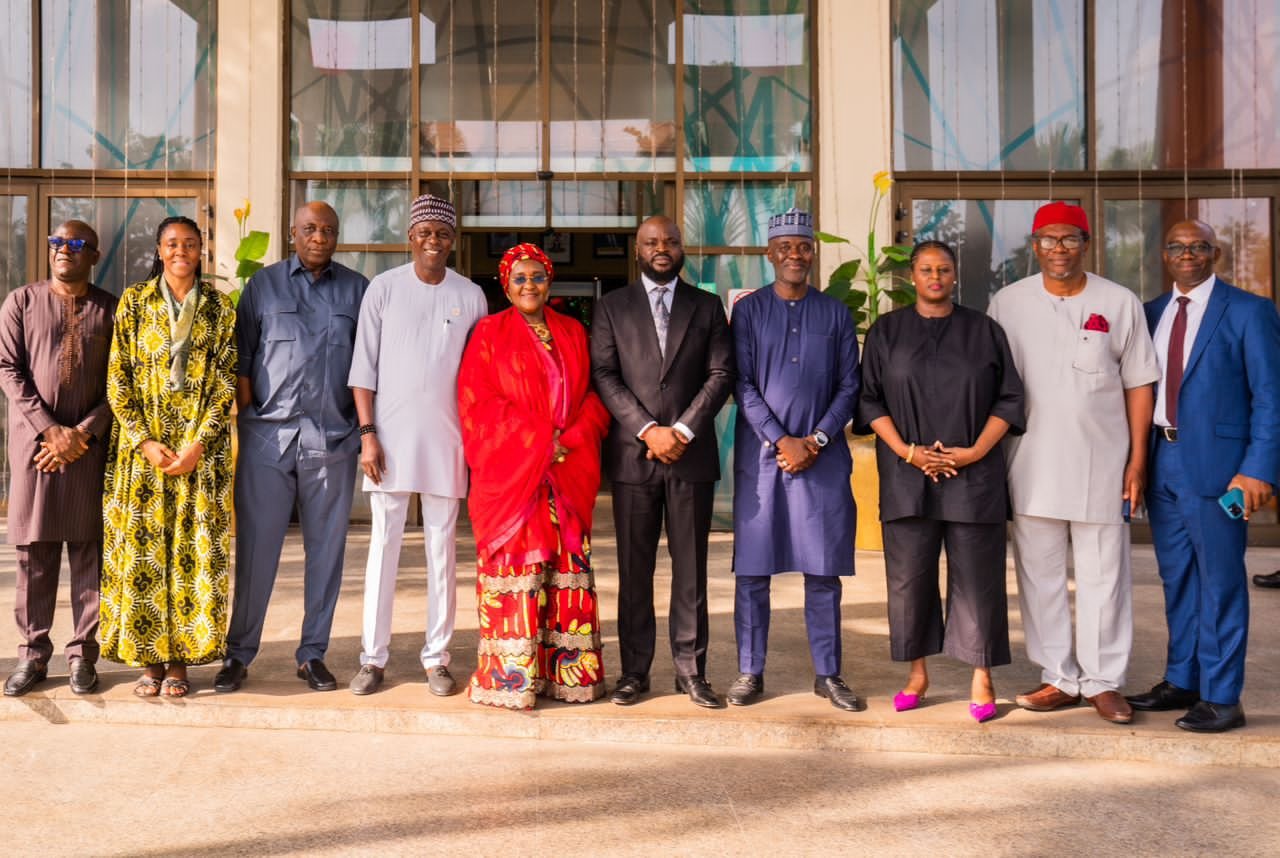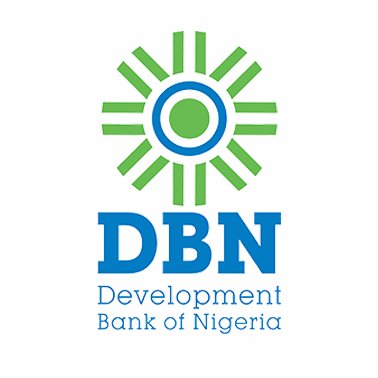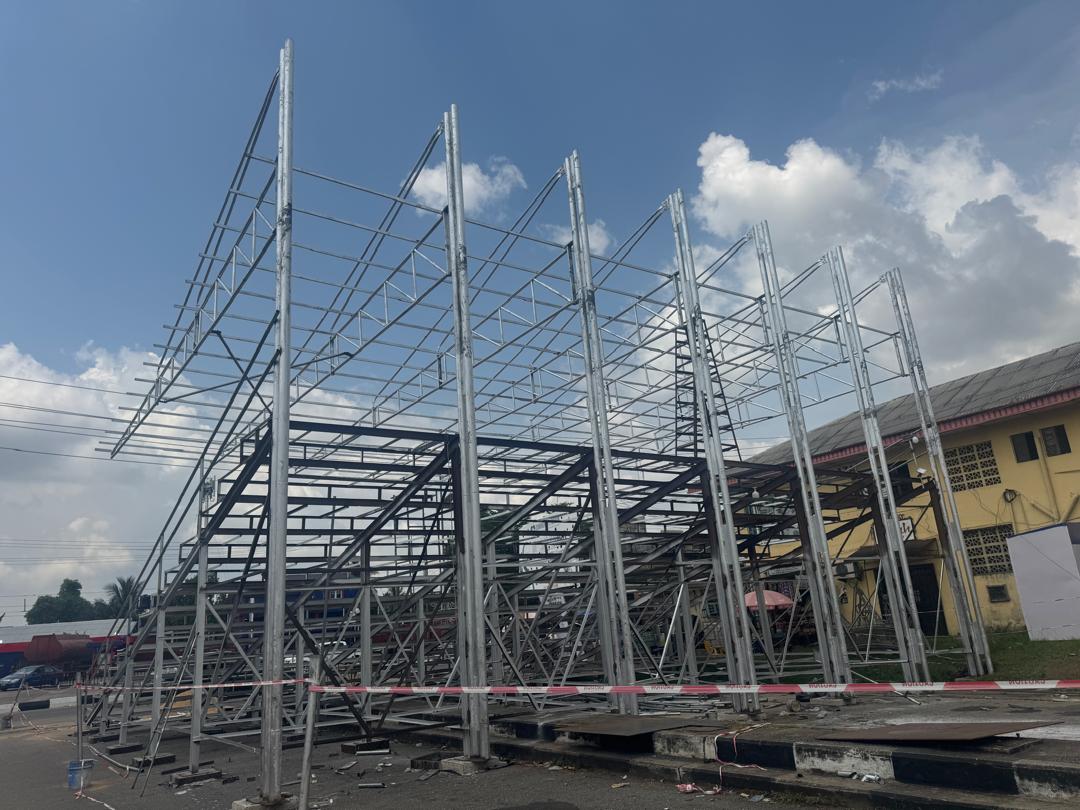FG Targets Mining And Automotive Transformation To Drive Industrial Revolution

In a strategic move to accelerate Nigeria’s industrial revolution, the Director-General of the Nigeria-China Strategic Partnership (NCSP), Mr. Joseph Tegbe, met with the Minister of State for Industry, Trade, and Investment, Senator John Owan Enoh, to align on transformative priorities aimed at repositioning the nation’s economy through the mining and automotive sectors.
The meeting, which held in Abuja, explored actionable strategies to unlock the full industrial potential of both sectors within the framework of President Bola Ahmed Tinubu’s Renewed Hope Agenda with an overarching goal to shift Nigeria from an import-dependent economy to a production- and export-led industrial powerhouse.
While receiving the DG, Senator Enoh reaffirmed the Federal Government’s renewed commitment to three priority sectors—Sugar, Cotton-Textile-Garment (CTG), and Automobiles— each backed by active industry councils to drive localized production, stimulate domestic demand, and boost Nigeria’s global industrial competitiveness.
At the center of this shift is the Nigeria First Policy, a landmark presidential directive that mandates all Ministries, Departments, and Agencies (MDAs) to prioritize Nigerian-made goods and services in public procurement.
This policy is already restructuring supply chains, catalyzing job creation, and reducing overreliance on imports across key sectors.
Mr. Tegbe emphasized that the Nigeria-China Strategic Partnership is committed to supporting this transformation, noting the country’s readiness to evolve from a consumption-driven economy into a strategic development partner—particularly with China.
Citing Brazil’s $94.41 billion export performance to China in 2024, he stressed Nigeria’s capacity to achieve similar milestones by focusing on high-impact sectors such as agriculture, solid minerals, and industrial manufacturing.
He highlighted the mining sector’s vast potential, with over 40 commercially viable minerals as critical enablers of industrial growth.
Rather than continuing the raw export of mineral resources, he emphasized the need to build out local beneficiation, processing, and refining capacity—an agenda supported by clear regulatory reforms and investment incentives.
The Industrial Revolution Working Groups (IRWG)—a flagship initiative of the Presidential Council on Industrial Revitalization—are already operational, working to resolve regulatory bottlenecks, improve access to infrastructure and financing, and unlock sustainable growth across the mining value chain.
In parallel, the automotive sector is receiving focused government attention, with policies in place to make Nigeria a regional hub for vehicle assembly and full-scale manufacturing.
The Nigeria First Policy has already begun to stimulate demand for domestically assembled vehicles, while boosting investor confidence in the sector.
There is a strong commitment to the implementation of a structured national automotive policy, aiming to move from basic vehicle assembly to advanced manufacturing that integrates local supply chains and paves the way for electric and energy-efficient mobility.
Speaking on Nigeria’s comprehensive strategic partnership with China, Mr. Tegbe shared updates on landmark agreements secured with major Chinese firms including Huawei, China Communications Construction Company (CCCC), Chilwee Group, and Choice International Group (CIG).
These companies are bringing advanced technologies, skilled manpower, and capital into Nigeria’s automotive, mining, manufacturing, communication and clean energy sectors—contributing directly to job creation, technology transfer, and industrial innovation.
“These partnerships are not only vital for job creation, but they will also strengthen our technical capabilities, expand industrial output, and accelerate localization of production,” said Mr. Tegbe. “We are changing the narrative—Nigeria must no longer be seen as a mere consumer market; but an active industrial partner.”
Under the leadership of President Bola Ahmed Tinubu, Nigeria is laying the foundation for a 21st-century industrial economy—one where innovation fuels global competitiveness.
As the Renewed Hope Agenda continues to drive economic transformation, the Nigeria-China Strategic Partnership remains a key institutional vehicle for delivering the cross-border investments, infrastructure, and technology that will define the future of Nigeria’s industrial growth.













